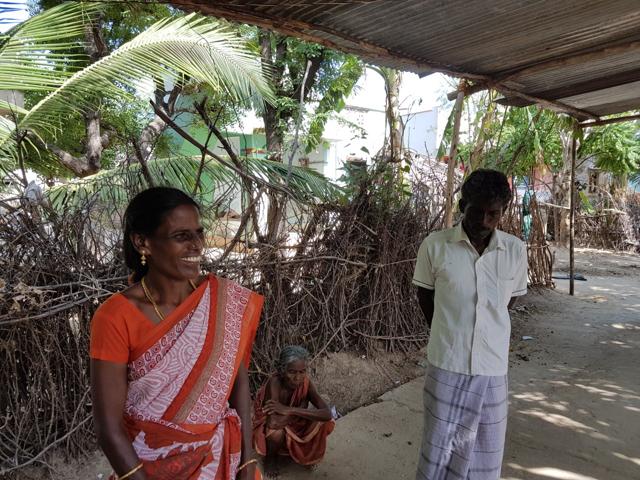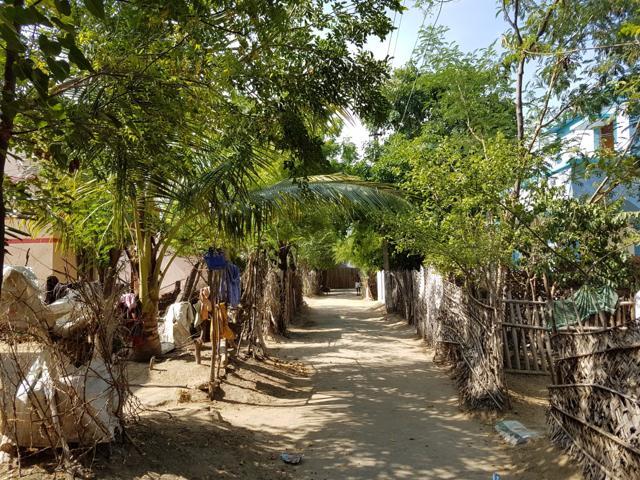Aren’t we humans too? A five-year Dalit struggle in a Tamil Nadu village
The story of Pazhangkallimedu villaeg in Tamil Nadu is reflective of a nationwide debate over the caste divide in India amid a string of attacks on Dalits in several states. Opposition parties allege that persecution of Dalits is increasing under the BJP-led government at the Centre.
Pazhangkallimedu is a picture-postcard village in Tamil Nadu’s Nagapattinam district – neat rows of thatched houses along the Vedaranyam canal, sheltered from the sweltering heat by coconut groves.

But the peaceful facade hides a tense tussle between upper caste Hindus and Dalits over the village’s sole place of worship.
“We’ve been fighting to perform mandagapadi rites during Aadi for five years now,” said Kasi Mariappan, union secretary of VCK, a Dalit political movement in the state.
“All we are asking for is that the upper castes allot us one day for our rite so we can worship our god. Is that so wrong?”
Aadi is a holy month according to the Tamil calendar, usually falling between mid-July to mid-August, and is considered to be a particularly auspicious time in the countryside. Mandagapadi is the act of offering money as a tribute to the gods.
But the upper castes, comprising the influential Pillai community, refuse to allow Dalits into the village temple.
Read | Word for word: When Dalits use jokes, puns to protest in Gujarat
The story of Pazhangkallimedu is reflective of a nationwide debate over the caste divide in India amid a string of attacks on Dalits in several states. Opposition parties allege that persecution of Dalits is increasing under the BJP-led government at the Centre.
What has exacerbated the stand-off in this village this year is the alleged influence of Hindutva outfits such as the Hindu Makkal Katchi.

Dalit villagers filed a petition under the 1989 SC and ST Prevention of Atrocities Act on Saturday after a series of peace talks between the two sides failed.
On Tuesday, the Madras high court said that the collector and MLA had a “statutory and moral right” to allow the Dalits to worship during Aadi next year.
“It’s too late now,” said A Nagappan, a VCK officer involved with the protests. “The last auspicious day for mandagapadi is August 12, and there is no chance that the upper castes will give us that day.”
He added the panchayat president is unable to do anything because he is a Dalit. “And those in charge, from the collector to MLA OS Manian just pass off the issue to one another.”
Read | Now ‘gau rakshaks’ from Andhra beat up 2 Dalits for skinning dead cow
The three-week-long stand-off came to a head when several Dalits threatened to convert to Islam if they were unable to perform mandagapadi.
One member of the Pillai community, who did not wish to be named, said the row was “regrettable, and had gone too far this time”. He, however, refused to comment on their objection to Dalits performing mandagapadi.
The Hindu Makkal Katchi also denied it had prevented anyone from performing rituals. “The VCK is politicising the issue,” said P Ravikumar, a member of the HMK.
The caste divide, however, is restricted only to mandagapadi.
“We go to each other’s houses, eat meals together, and let our children play with one another,” said Manimegalai R, a 42-year-old Dalit labourer. “Why should we not be allowed into the temple or worship as well? Aren’t we also human beings?”
She also pointed out that with rising education levels, the Dalits are no longer ready to accept “injustice as tradition”.
“We aren’t scared of any response to our struggle - what we are doing is fighting for our rights.”
Their struggle may have failed for yet another year, but the Dalits say it is only a matter of time before they get equal standing in the village.
“Orei panchayat, orei makkal, orei saami (one panchayat, one people, one god),” said Nagappan.
Read | Progressive Modi? The PM speaks on transgenders, Dalits and Kashmir





